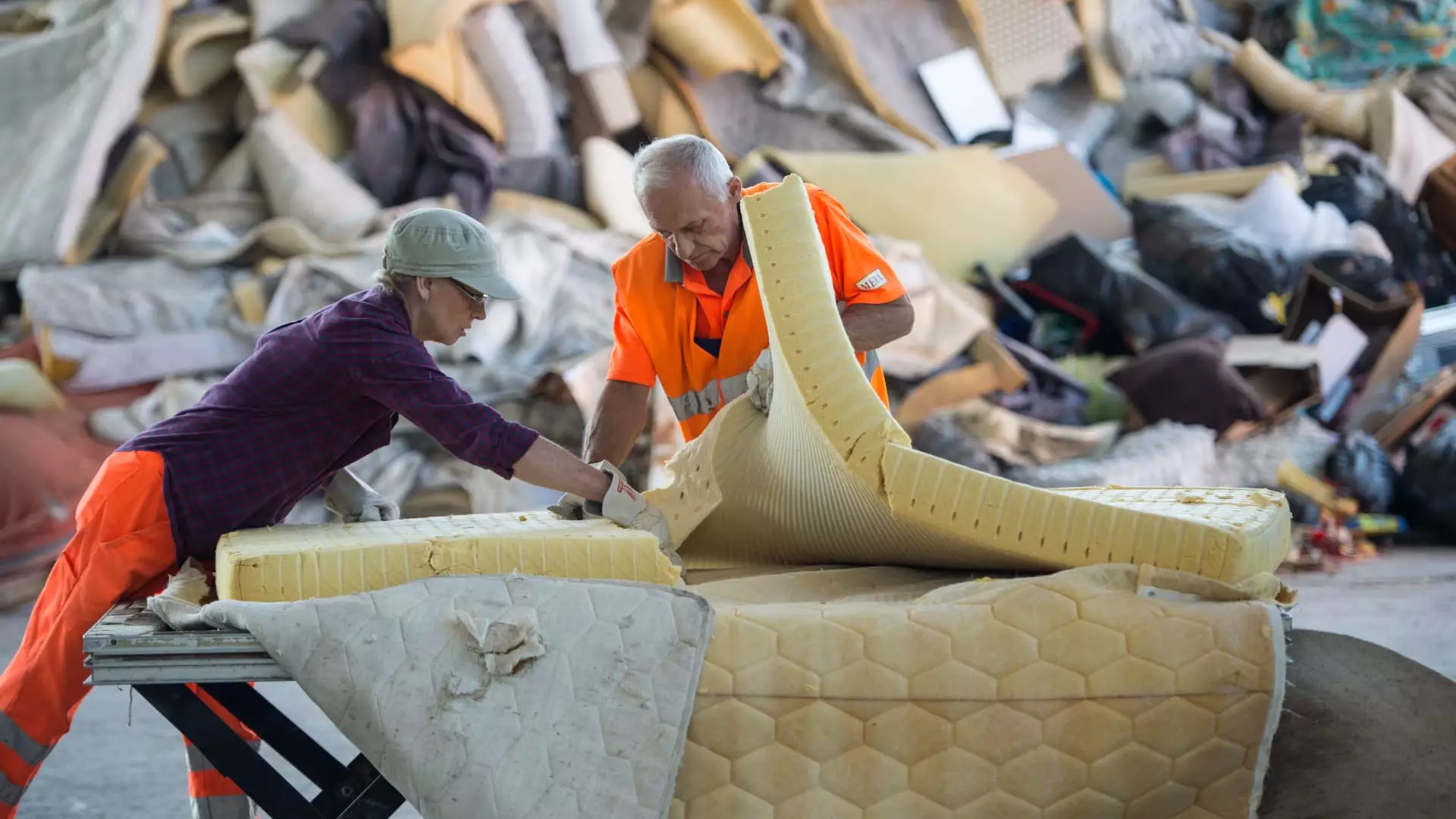The growing concern for environmental sustainability is prompting innovations and policy changes across various industries, including the mattress sector. Recently, initiatives in states like California, Connecticut, Oregon, and Rhode Island have led to the implementation of a flat fee on mattress purchases. This fee, which varies between $16 and $23, is designed to fund recycling programs that combat the overwhelming disposal of mattresses in landfills. As this movement gains traction, there are indications that more states may soon adopt similar measures.
Each year, Americans dispose of approximately 15 to 20 million mattresses, equating to around 50,000 each day. This is a staggering amount when one considers that an estimated 75% of a mattress is recyclable. Materials such as wood, steel, foam, and fibers can be reclaimed, thus reducing waste and conserving resources. Conversely, the current mattress disposal methods often lead to significant environmental damage, exacerbating landfills’ already serious issues.
The Mattress Recycling Council (MRC), a nonprofit organization established by the mattress industry, plays a crucial role in advocating for and managing these recycling initiatives. By enabling proper recycling channels, the MRC has made strides in mitigating the environmental impact of discarded mattresses.
The hallmark of these state-level recycling programs is the “stewardship assessment” fee that is placed onto the purchase receipts of consumers. In Oregon, for example, residents pay a fee of $22.50 when buying a new mattress, which directly contributes to the execution and sustainability of the recycling program. Similar approaches are being adopted in California and Connecticut, where fees have been adjusted upward to effectively bolster operational funds for their respective programs.
Expanding the infrastructure for recycling is a central goal of these initiatives. For instance, Oregon plans to enhance the convenience of recycling by establishing numerous drop-off locations throughout the state. This not only provides consumers with easier access to recycling but also aims to reduce the incidence of illegal disposal practices, which can plague community environments.
The concept of Extended Producer Responsibility (EPR) is a key philosophical underpinning of these mattress recycling programs. EPR shifts the burden of waste management from consumers and municipalities back onto manufacturers. According to Reid Lifset, a resident fellow at Yale University, the philosophy behind EPR is to ensure that producers take responsibility for the lifecycle of their products.
This approach not only reflects a shift in environmental policy but helps create a sustainable financial model for recycling. Fees collected from consumers serve as a sustainable funding source, ensuring that efforts for effective recycling can continue without becoming a financial burden on local governments. In Oregon, for example, a significant portion of the collected fees is directed towards operational costs, with the remainder funding areas such as public education and the creation of jobs within the recycling sector.
As of now, only a handful of states have adopted mattress recycling fees, but the trend is poised to expand. The MRC is already in discussions with lawmakers in additional states, including Massachusetts and New York, to introduce similar programs. Such initiatives may pave the way for a more robust recycling framework across the United States.
While recycling mattresses is currently a challenge for many Americans due to limited options, progress is being made. With just 58 recycling companies nationwide devoted to mattress disposal, it is evident that more comprehensive infrastructure needs to be established. However, the burgeoning recognition of circular economies—where products are designed with their entire lifecycle in mind—suggests that the industry is moving towards a more sustainable model.
The mattress recycling movement exemplifies an innovative response to environmental challenges. As states adopt these new recycling fees and explore EPR solutions, there is potential not just for reducing landfill waste, but for fostering a cultural shift towards sustainability in consumer behavior. Through these efforts, we can look forward to a future where responsible waste management becomes the norm, paving the way for a cleaner, greener world.

